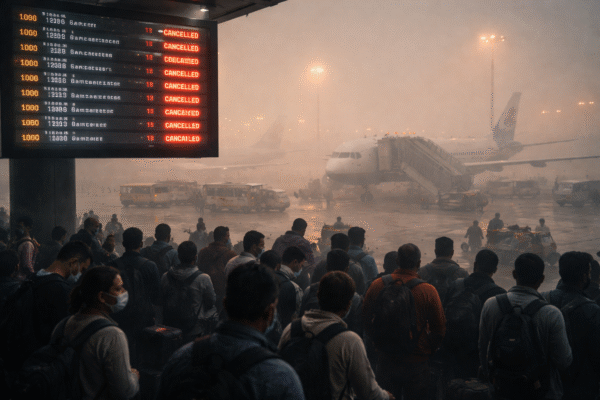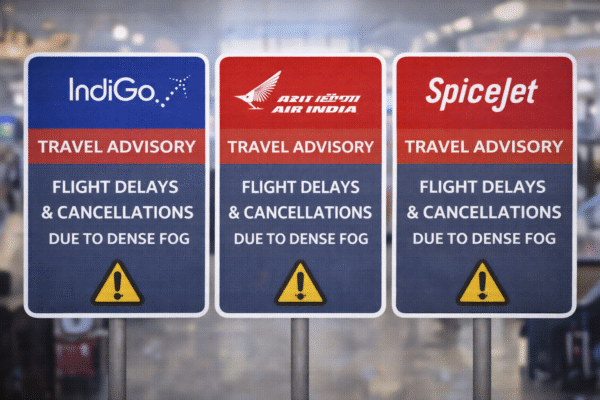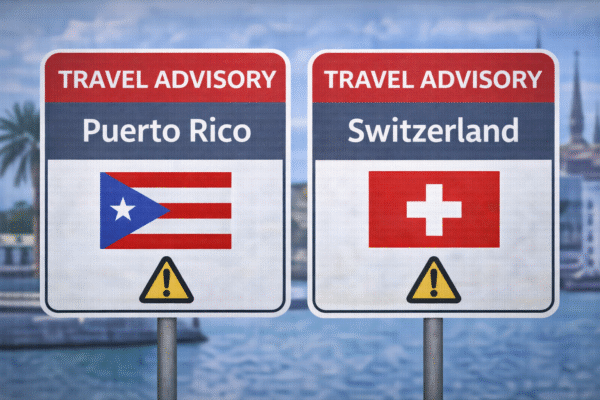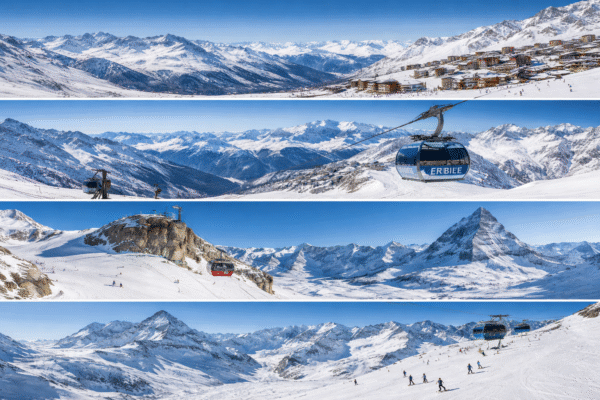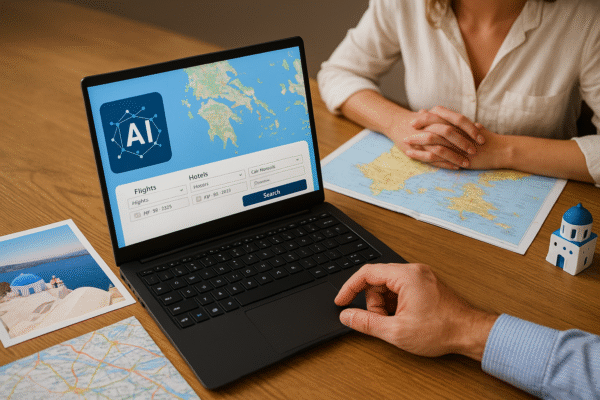Athens, Greece — Greece is at the center of a major transformation in the global tourism industry as artificial intelligence (AI) reshapes how vacations are planned and experienced. As 2025 unfolds, the nation, already set for another record-breaking year in visitor arrivals and tourism revenue, is balancing the promise of technology with the timeless value of human expertise and cultural authenticity.
Tour operators across the country are adopting AI-driven systems to streamline logistics, from automated flight and hotel bookings to real-time itinerary updates and dynamic pricing tools. This technological shift has been fueled by the rapid growth of AI applications in the global travel industry, with travelers now expecting faster responses, automated confirmations, and seamless digital assistance.
The efficiency gains are undeniable. AI reduces human error, processes massive datasets, and cuts costs, enabling operators to meet growing demand while saving time. This is particularly crucial as Greece continues to see unprecedented visitor numbers in destinations such as Athens, Santorini, and Mykonos. However, while the technology enhances operations, there is growing concern that relying too heavily on automation could strip Greek tourism of its unique, human-driven character.
The Growth of AI in Greek Tourism
Over the past decade, nearly every major Greek tour operator has integrated AI into daily operations. Chatbots now handle common customer inquiries, such as check-in times or tour availability, while AI-powered recommendation engines create itineraries tailored to general traveler profiles. Behind the scenes, machine learning optimizes ferry schedules, forecasts demand, and even adjusts room rates based on market trends.
For businesses, this results in smoother workflows and better scalability. For travelers, it often means quick answers and well-organized trips. Yet, many visitors report that these AI-assisted interactions, while efficient, sometimes lack the warmth, intuition, and personalization that make a trip memorable.
The Risk of Deskilling
One of the biggest risks is what experts describe as “deskilling.” Historically, experienced travel professionals developed itineraries that balanced sightseeing, cultural immersion, and relaxation — always with an eye for personal preferences and local nuances. Today, AI can generate complete itineraries in seconds, leaving human operators to simply review and approve. Over time, this reduces the opportunities for staff to apply and refine their own judgment and expertise.
This shift raises questions about the future of service quality. If operators lose touch with hands-on knowledge — such as the best time to visit a hidden archaeological site or the intricacies of ferry schedules during peak season — Greece risks offering a more generic experience that feels mass-produced, even in its most unique locations.
Traveler Perceptions and Experiences
Tourists are increasingly aware of this change. While itineraries are smoother and less prone to errors, many travelers note that trips now feel “templated.” The small but meaningful personal touches — like discovering a quiet taverna in Crete or being guided to a less crowded beach on Naxos — are becoming less common.
Personalized insight is particularly valuable for special occasions. Couples celebrating anniversaries, for example, may want slow-paced, intimate afternoons rather than fast-paced sightseeing, while families with children often prioritize flexibility over packed schedules. These subtle needs are often overlooked by algorithms, highlighting the importance of keeping human intuition at the heart of the experience.
Balancing Efficiency and Expertise
The challenge facing Greece in 2025 is not whether to adopt AI — but how to integrate it without losing authenticity. Successful tour operators see AI as a partner rather than a replacement. By automating repetitive administrative tasks such as managing hotel availability, processing visa information, or checking weather forecasts, human operators are free to focus on what matters most: creativity, cultural insight, and personalized service.
Some agencies are embracing collaborative workflows where AI drafts multiple itinerary versions, and human agents refine them with their knowledge of hidden gems, cultural events, and personal anecdotes. This approach ensures that travelers enjoy the best of both worlds — the efficiency of technology and the richness of human connection.
Training is also becoming a priority. Tourism businesses across Greece are now investing in AI literacy programs to ensure their staff can use these tools effectively while retaining their decision-making and cultural expertise.
Implications for Greek Tourism
Greece’s allure lies in its unique combination of history, culture, and natural beauty — from the ancient ruins of Delphi to the serene beaches of the Ionian islands. However, if operators rely too heavily on automated systems, there is a risk of reducing the country to a standardized “Mediterranean package,” lacking the personal stories and insider tips that travelers cherish.
On the other hand, when AI is used strategically, it becomes a powerful tool for enhancing the visitor experience. Optimized ferry schedules, accurate weather predictions, and seamless bookings create a smooth foundation, while human expertise adds depth through curated recommendations and local storytelling.
Sustainability and the Future
The tourism boom in Greece has also raised concerns about sustainability, with over-tourism in popular islands prompting the government to impose limits on short-term rentals and visitor numbers in certain areas. Here too, AI can play a role — using data analytics to monitor visitor flows, manage crowd levels, and promote lesser-known destinations that can benefit from increased visibility.
The next frontier for Greece will be to combine AI innovation with sustainable practices, ensuring that growth does not come at the expense of local communities or the environment.
Conclusion
Greece’s tourism industry in 2025 is at a pivotal moment. AI brings unmatched efficiency and scalability, but it cannot replicate the intuition, empathy, and cultural understanding of seasoned travel professionals. By striking the right balance — letting AI handle logistics while humans focus on personalization and cultural depth — Greece can continue to deliver the exceptional travel experiences that make the country one of the world’s most beloved destinations.
The future of Greek tourism lies not in choosing between technology and tradition but in weaving them together to create journeys that are seamless, authentic, and unforgettable.
For more travel news like this, keep reading Global Travel Wire





